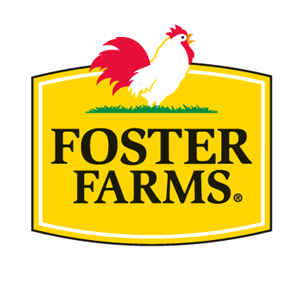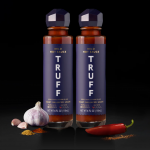The Checkout: Everything Legendary Secures Investment from Live Nation; General Mills Invests $3 Million Into Eco Harvest
Welcome to The Checkout: an express lane for the weekly news you need to know, always 10 items or less.

Everything Legendary Secures Investment from Live Nation
Black-owned plant-based meat company Everything Legendary announced this week it has secured entertainment company Live Nation as an investor in its $6 million Series A round, which closed in February and was led by CircleUp Growth Partners and included participation from General Mills and Mark Cuban.
The partnership will bring Everything Legendary’s vegan burgers to Live Nation venues and festivals across the U.S., including all House of Blues restaurants, according to the release. Less than a year since the brand first debuted, it has already seen rapid success and reached the shelves of over 3,000 grocery stores, including Publix, Target, Safeway, Ralphs, across the country.
“We’re on a mission to not just win over taste buds but also eating habits, encouraging people across the country to adopt healthier alternatives, and I’ve been especially proud that we’ve helped power this movement in the Black community where veganism is on the rise,” said Duane “Myko” Cheers, Everything Legendary’s co-founder, in a press release. “With the investment and partnership of Live Nation we’ll be serving up our amazing flavor to millions of music fans.”
The brand has attributed its rapid success to its hustle, which Cheers told NOSH during a previous conversation, got them into many rooms prior to having the proper capital to support its growth. Everything Legendary currently makes plant-based patties, vegan cheeseburger patties and ground meat alternatives with a focus on clean, simple ingredients and taste.
“Fans create lifelong memories enjoying live music, and everything they enjoy while at the show has the potential to make that memory even better,” said Tom See, COO, Venue Nation, in a press release. “By partnering with Everything Legendary we’re excited to bring plant-based items to our events so fans have even more sustainable options to choose from.”

General Mills and Ecosystem Services Market Consortium (ESMC) Invest $3 Million Into Eco Harvest
General Mills is upping its commitment to next-gen agriculture with a $3 million investment into Eco Harvest, a regenerative agriculture project spearheaded by Ecosystem Services Market Consortium (ESMC), a non profit organization dedicated to scaling sustainable ecosystem services within the agricultural sector. General Mills has been named a founding member of ESMC.
Eco Harvest has been in pilot mode for the past two years, working with a group of 21 Kansas wheat farmers, alongside the Kansas Department of Health and Environment, to improve soil health with the use of cover crops and reduced tillage. With this recent investment, General Mills and ESMC have laid out a multi-year roadmap to scale the program to other priority regions in the U.S. and Canada, focusing on regions where the global food giant sources its key crops like wheat, oat, corn and dairy.
The program operates by generating and selling credits for increased soil carbon, greenhouse gas reduction and improved water quality which represent environmental benefits within the supply chain. The sale of those credits are then rewarded to participating farmers.
“With our Eco-Harvest market launched, we are excited to partner with General Mills on our joint vision to scale regenerative agriculture outcomes from U.S and Canadian producers using our science-based, standards-based approach,” said Debbie Reed, ESMC’s executive director, in a press release. “We have spent more than three years building, testing, and refining our program. Now, we can scale impacts to not only pay farmers but also tap the interest from companies like General Mills, along with investors and consumers who are seeking transparent and meaningful actions.”
This program also contributes to General Mill’s commitment to “advance regenerative agriculture on one million acres by 2030, reduce absolute greenhouse gas emissions across its value chain (scopes 1, 2 and 3) by 30 percent by 2030, and ultimately achieve net zero emissions by 2050.”

Atlas Holdings Acquires Foster Farms, Names New CEO
Fresh and frozen poultry brand Foster Farms has been acquired by Atlas Holdings, according to an announcement earlier this week. Foster Farms will continue to operate under the same name, terms of the deal were not disclosed.
The family-owned, California-based poultry producer generates approximately $3 billion in revenue annually, employs a team of over 10,000 individuals and operates processing plants in California, Washington, Louisiana, Oregon, and Alabama, according to a press release.
As part of its acquisition, Foster Farms has brought on Donnie Smith, former CEO of Tyson Foods, as its new CEO and Chairman. Smith spent almost four decades with Tyson in a variety of roles, was named CEO in 2009 and held the position until he retired in 2016.
“I love the poultry industry and am proud that Atlas has asked me to become the CEO of Foster Farms,” Smith said in the release. “I’ve long been an admirer of the Foster Family and the business they’ve built over the past eight decades. In this new era, we will maintain and further that legacy, rooted in animal welfare, superior product quality, customer service and community engagement.”
“We are thrilled to welcome Foster Farms to the Atlas Family of great global businesses,” said Atlas Partners Sam Astor, Ed Fletcher, and Mike Sher, in the release. “We have a long history of partnering with proud family-owned companies to honor their past while driving additional operational, environmental, and financial success for the next generation. Working closely with Donnie Smith, the Leadership Team, and our dedicated team members, that is precisely what we intend to do at Foster Farms.”

Campbell’s Reports Q3 Earnings
Soup continues to serve as Campbell’s breadwinner, according to its Q3 2022 earnings results, reported this week. The global food giant saw organic net sales increase 9% to $2.1 billion this quarter with consumption rates rising 4% compared to last year.
Organic net sales in its Meals & Beverages segment rose 9%, largely driven by increased soup, food service and Prego pasta sauces sales, despite declines in its Canada business and increased promotional spending. U.S. soup sales led the segment’s growth (+15%) with condensed and ready to serve lines driving a significant portion of that increase.
Outside of its Meals & Beverages, Campbell’s power snack brands – including Snyder’s of Hanover pretzels, KettleBrand potato chips and Goldfish crackers – saw a 13% sales increase, driving 8% net sales growth within the overall segment. According to the report, inflation-driving price increases and lower promotional costs were partially offset by overall volume declines in the category this quarter.
“As expected, we had a strong recovery across the business in the quarter with high-single-digit sales growth driven by sustained consumer demand for our brands and significantly improved supply,” said Mark Clouse, Campbell’s President and CEO, in a press release. “Our improved supply chain execution along with inflation-driven pricing began to mitigate the margin pressure we have experienced over the last 12 months. While the operating environment remains challenging and we continue to expect significant inflation, our team is executing well, and Campbell is on a much stronger foundation today.”

SCiFi Foods Secures $22 Million To Make Cultivated Meat
Recently rebranded food technology company SCiFi Foods (formerly Artemys Foods) announced a $22 million Series A investment round to fund its plans to bring a scaleable, cultivated meat product to market.
The new funding round was led by venture capital fund Andreessen Horowitz and brings SCiFi’s total investment to $29 million, with backing from rock band Coldplay as well as Valor Siren Ventures, BoxGroup, Entree Capital, and Prelude Ventures. The San Leandro, California-based company also announced the appointment of new board member Myra Pasek, who previously served as general counsel at Impossible Foods and director of communications at Tesla.
SCiFi’s approach to cultivated meat differs from other alt-meat businesses by using CRISPR technology to bioengineer the DNA of animal cells to make “extremely small changes to DNA,” CEO and Co-Founder Joshua March told Forbes. “We use these very minor changes to shift the behavior of our cells so that they are more cost effective to manufacture.”
The nascent cultivated meat industry is having a big year for investment. Early adopter Upside Foods (formerly Memphis Meats) raised $400 million in a Series C funding round and Eat Just’s cultivated meat business – GOOD Meat – announced its plans to build a facility capable of producing 30 million pounds of cultured beef or chicken.
All of this comes on the heels of a record year of investment for cultivated meat and seafood companies. In 2021, the industry raised $1.4 billion, more than any single year in its history and more than three times the $400 million raised in 2020, according to a report from the non-profit Good Food Institute.




















